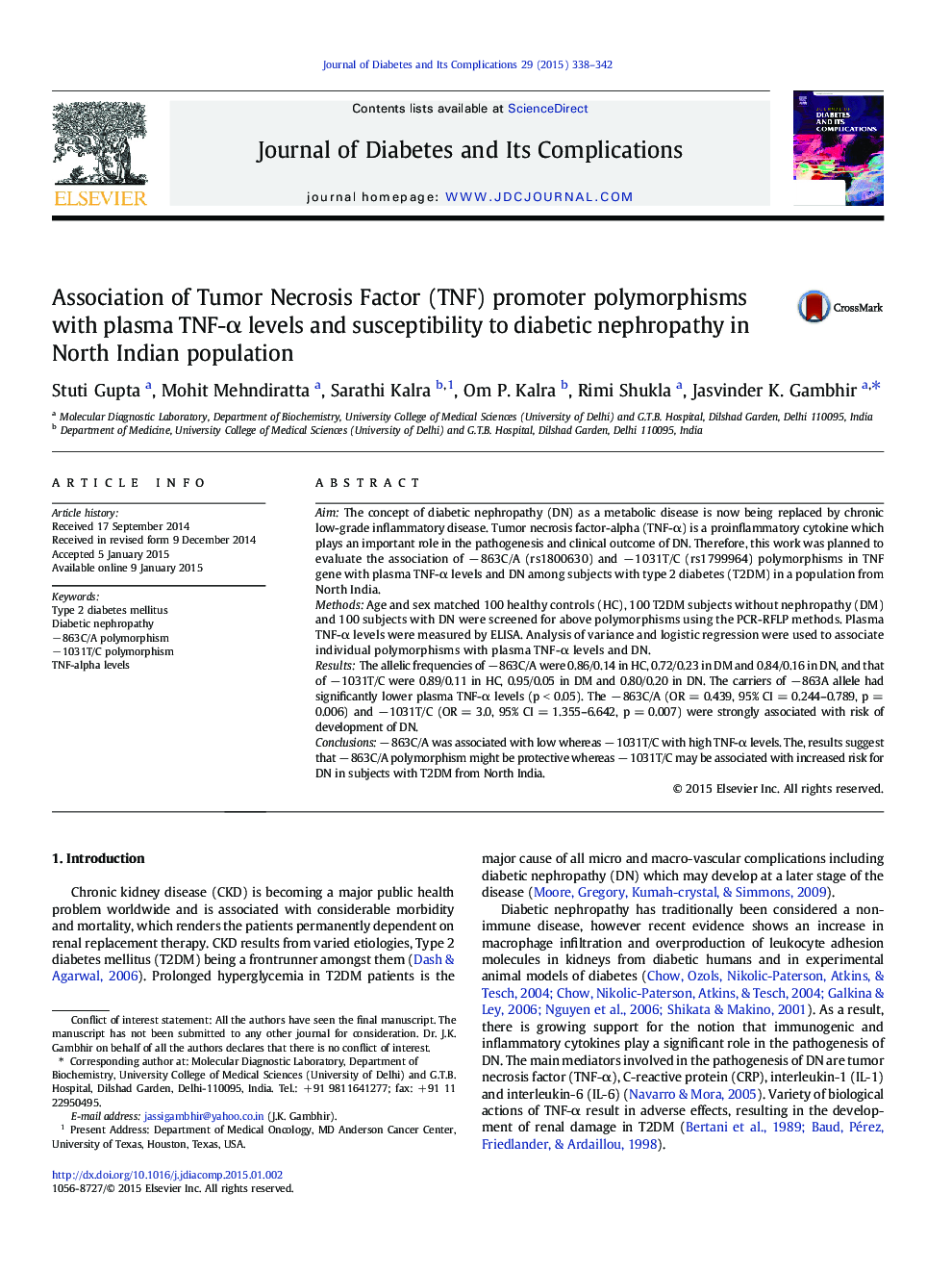| Article ID | Journal | Published Year | Pages | File Type |
|---|---|---|---|---|
| 5902466 | Journal of Diabetes and its Complications | 2015 | 5 Pages |
AimThe concept of diabetic nephropathy (DN) as a metabolic disease is now being replaced by chronic low-grade inflammatory disease. Tumor necrosis factor-alpha (TNF-α) is a proinflammatory cytokine which plays an important role in the pathogenesis and clinical outcome of DN. Therefore, this work was planned to evaluate the association of â 863C/A (rs1800630) and â 1031T/C (rs1799964) polymorphisms in TNF gene with plasma TNF-α levels and DN among subjects with type 2 diabetes (T2DM) in a population from North India.MethodsAge and sex matched 100 healthy controls (HC), 100 T2DM subjects without nephropathy (DM) and 100 subjects with DN were screened for above polymorphisms using the PCR-RFLP methods. Plasma TNF-α levels were measured by ELISA. Analysis of variance and logistic regression were used to associate individual polymorphisms with plasma TNF-α levels and DN.ResultsThe allelic frequencies of â 863C/A were 0.86/0.14 in HC, 0.72/0.23 in DM and 0.84/0.16 in DN, and that of â 1031T/C were 0.89/0.11 in HC, 0.95/0.05 in DM and 0.80/0.20 in DN. The carriers of â 863A allele had significantly lower plasma TNF-α levels (p < 0.05). The â 863C/A (OR = 0.439, 95% CI = 0.244-0.789, p = 0.006) and â 1031T/C (OR = 3.0, 95% CI = 1.355-6.642, p = 0.007) were strongly associated with risk of development of DN.Conclusionsâ 863C/A was associated with low whereas â 1031T/C with high TNF-α levels. The, results suggest that â 863C/A polymorphism might be protective whereas â 1031T/C may be associated with increased risk for DN in subjects with T2DM from North India.
